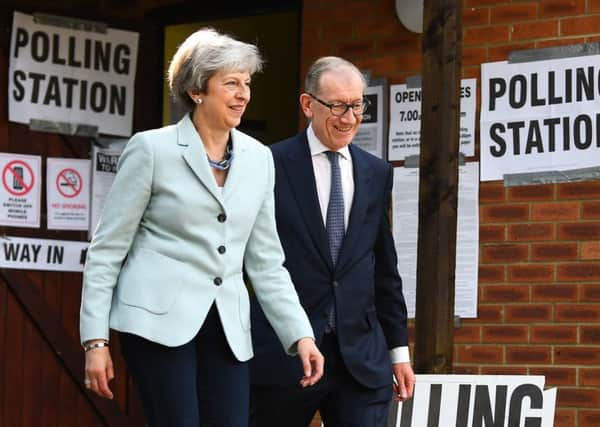EU elections: Why is no-one talking about millions of missing votes? – Bill Jamieson


More than four days of furious argy-bargy over the European election results – and we can’t track down the majority, the party that won hands down. I refer to the Missing in Action, the Lost Legions, the Disappeared Millions.
It seems to have passed with little comment or analysis how, after almost three years of raging controversy, acrimonious division, week by week drama in Westminster, the fall of the Prime Minister and the biggest political crisis in UK politics for 100 years, voter turnout across the UK last week averaged just 36.7 per cent. This figure is well below the average turn-out across the EU of 55 per cent and the 68.7 per cent who voted in the 2017 general election.
Advertisement
Hide AdAdvertisement
Hide AdGood on the intrepid minority who troubled to venture out last Thursday. But that leaves 63 per cent of the total UK electorate unaccounted for. Who, after this raucous argument and disputation, wall-to-wall coverage of Brexit on broadcast news, mainstream press and social media, could not have been fired up or even had a point of view, one way or the other? Where on earth was the 63 per cent who didn’t vote at all?
Let’s put a number on that abstract percentage. It represents no fewer than 28.8 million people entitled to vote, folk who were on the electoral register but who, for one reason or another, went AWOL on polling day.
Even in a crowded island, it’s hard to lose 28.8 million people. But we just did.
How could we lose so many? And what possible conclusions could be drawn by the pollster pundits, the analysts with their pie charts, and the mouthy instant experts of the commentariat quick to opine minute by minute on who won and who lost, when by far the majority of the UK electorate kept quiet?
Is it credible to construct a political cartography of Britain without them? It’s like Professor Sir John Curtice gesticulating with a stick at a wall chart with a huge black hole in the middle.
The ‘Missing Legions’ of non-voters were not evenly distributed. Here in Scotland, the turnout was higher than the UK average at 39.9 per cent – tribute, perhaps, to our greater civic-mindedness – or our boiling rage over Westminster gridlock, so intense that the SNP, championing a second referendum for independence from the UK, won by a mile.
It is always dangerous to make assumptions about why so many people choose not to vote – way above the normal absenteeism of general elections. It might reflect a view that millions of us, despite all the noise and raucous argument that has dominated the nightly news since 2016, are simply unengaged and uninterested in Europe; that the European Parliament for all its self-importance and debating hall grandeur, counts for little in our everyday lives. What difference does voting really make? Searching questions need to be asked.
A similar sense of disengagement and ennui has also started to affect attitudes towards the political class at Westminster. What’s the point of voting Brexit when so many MPs are staunch Remainers, and have sought to frustrate the UK’s departure? That disenchantment may be strengthened by indications this week from House of Commons Speaker John Bercow, whose rulings have been widely seen as pro-Remain, that he might not stand down in July as he had previously indicated.
Advertisement
Hide AdAdvertisement
Hide AdElsewhere, Labour leader Jeremy Corbyn is under pressure to move to a clear Remain position and back a ‘confirmatory vote’.
But that could well risk further disaffection in areas of traditional working-class support. Scotland, where the Labour vote has shrunk to a humiliating 9.3 per cent, is already lost. In other former Labour heartlands such as Wigan, Middlesbrough and Merthyr Tydfil – the Welsh valley town that swept Labour hero Keir Hardie to Westminster – the turnout last week fell below 30 per cent. What is also evident is a reluctance to accept the legitimacy of victory and the decline of loser consent.
The notion of the ‘winning vote’ is becoming an anachronism, a disappearing deference in a culture where voting results are now uniformly challenged: Scotland’s 2014 vote to remain in the Union has no more settled the matter of independence than the 2016 referendum vote has settled our relationship with the EU.
This does not bode well for the outcome of a ‘confirmatory referendum’ or ‘People’s Vote’. What’s the point of voting (again) if the ‘result’ is not accepted by those who ‘lost’?
One troubling outcome could well be a further rise in voter disengagement and a swelling of the ranks of the Missing Millions. Continue to ignore this, and democracy as we know it is in peril.